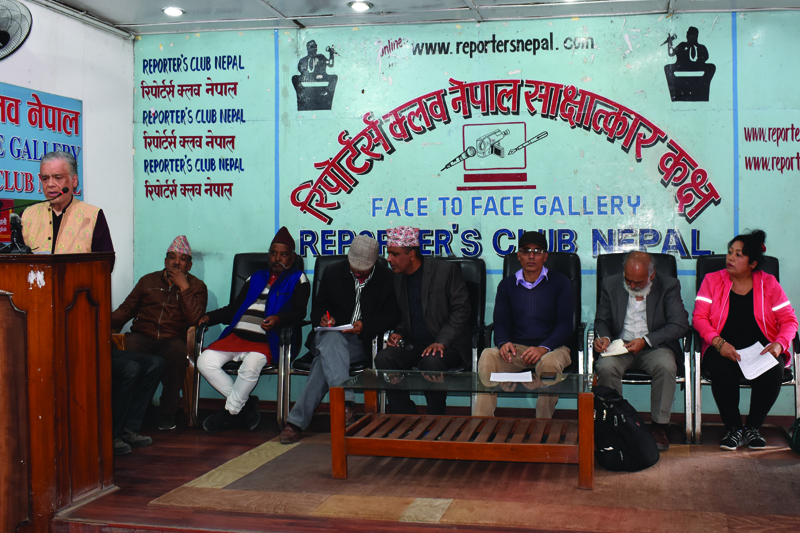On March 14th, INSEC – Nepal reported and participated in a press conference in Kathmandu to address the flawed provisions in the Transitional Justice Law Amendment Bill submitted to the Parliament. Conflict victims and human rights activists demand that the bill be amended to ensure justice for victims.
The third amendment to the Commission for Investigation, Truth and Reconciliation Act, (2071) for the investigation of disappeared persons has been criticized for providing immunity to serious crimes like murder. Human rights activist Charan Prasai alleged that the bill will not bring transitional justice to a conclusion and accused the government of attempting to conclude transitional justice in a unilateral manner.
Conflict victims, such as Madhav Prasad Neupane and Purnaprasad Paudel, shared their stories of torture and injustice at the hands of the state. Savitri Shrestha stated that she has been fighting for justice since 2055 but has not received it yet. They do not believe that the government will provide justice without pressure from the international level.
Purnaprasad Paudel, a conflict victim, recounted the torture inflicted on his family by the state. He revealed that he was also tortured by the army and credits INSEC for his release, stating that without their intervention, he might not have survived. Paudel expressed his gratitude towards INSEC.
Gyanendra Aran, a conflict victim and advocate, objected to the bill’s division of serious violations of human rights into two parts and the grant of amnesty for murders. Senior Advocate Dr. Dinesh Tripathi called the Truth Disclosure and Reconciliation Bill a betrayal of the nation and accused the government of attempting to commit a serious fraud on the nation itself.



